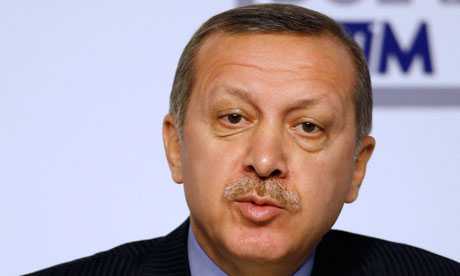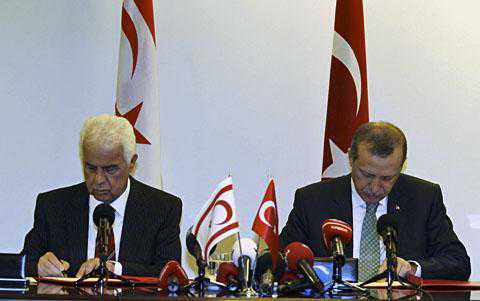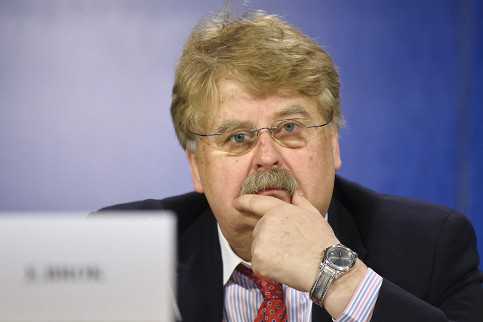ANKARA, Oct. 2 (Xinhua) — Turkey’s EU negotiations are at a bottleneck amid rows with Cyprus and strong objections to its bid for European Union (EU) membership from Germany and France.
Macedonia will enter the EU before Turkey, Prime Minister Recep Tayyip Erdogan said on Thursday during a joint press conference with his Macedonian counterpart Nikola Gruevski.
During his visit to Macedonia last week, Erdogan said the country’s EU membership process “continues with a fast pace,” adding that “Turkey is the country that conducts entry negotiations with the EU. However, Macedonia will enter the EU before Turkey.”
The EU has started accession talks with Turkey and Croatia in 2005. Six years later, Croatia has finalized its negotiations and is now on the verge of becoming the 28th member of the EU.
However, Turkey has only been able to open talks on 13 out of 35 chapters thus far, and talks have been provisionally completed in only one chapter. The membership talks are frozen since some 18 negotiating chapters are blocked.
Dispute with Cyprus is at the epicenter of the problem, since not only the Cypriot administration but also some other EU member states, which do not favor Turkey’s full membership to the union, raise it as political obstacles.
Countries such as France and Germany oppose Turkey’s full membership to the union, instead propose a privileged membership to the EU, which is strongly refused by Ankara.
“Europeans should first of all let Turkey finish its EU membership process successfully, instead of holding debates over whether Turkey should become a full member or not,” Turkey’s President Abdullah Gul said recently during an official visit to Berlin.
Blocking some negotiation chapters, France and Germany, along with Greek Cypriots, ask Turkey to meet its commitment vis-a-vis the Ankara Protocol, opening its ports to Greek Cypriot vessels. However, Ankara refuses to do so, saying that Turkey will not meet those countries’ demand if embargoes on Turkish Cypriots, northern part of Cyprus whose administration is recognized just by Turkey, were not lifted mutually.
Tension between Turkey and Cyprus escalated recently due to potential offshore gas deposits in the eastern Mediterranean. Cypriot administration vowed recently to keep Turkey’s EU talks on hold as long as Ankara challenges the island’s rights to launch gas drilling activities.
This was compounded by Turkey’s announcement that it will suspend relations with the EU in July 2012 if the bloc handed over its rotating presidency to the Greek Cypriots, unless talks for the reunification of the island will have been successfully concluded by then, which is highly unlikely.
As Turkey’s negotiations with the EU for membership have entered a period of siesta, Ankara intensified its efforts to urge the EU for visa exemption process for Turkish nationals.
Turkish EU Affairs Minister Egemen Bagis attended a meeting on Schengen visa in Strasbourg last week, pushing the union to produce concrete result in its pledge to ease visa requirements for Turks.
“We expect the words given to Turkey be honored and we want to see results,” Bagis told reporters on last Thursday following his talks at the European Parliament.
The minister’s remarks came after the EU Commissioner for Home Affairs Cecilia Malstrom said the union would “draw a road map to remove visa requirements completely” for Turkish nationals as a move to ease visa procedures.
However, many attempts of the European Commission to ease visa requirements for Turkish citizens were hindered, when some of the member countries blocked the EU Council to give consent to the commission’s work on visa facilitation process with Turkey.
Editor: yan
via Turkey’s EU bid on the rocks as tensions with Greek Cypriots escalate.







